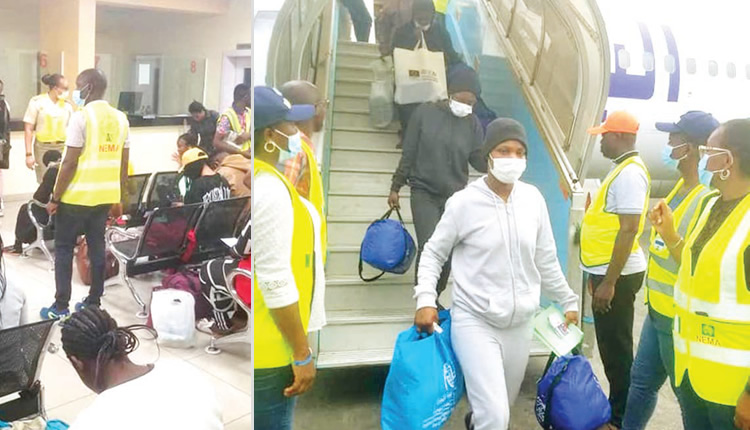NATIONAL SECURITY ISSUES
- The NGO Doctors without Borders (MSF) says the crew of its Geo Barents rescue ship witnessed the Tripoli-based coast guard intercepting 50 migrants on a boat in distress and returning them to Libya. According to Tweets posted by the medical humanitarian charity Doctors without Borders (MSF), which operates a private rescue ship, Geo Barents in the central Mediterranean, the Seabird reconnaissance plane operated by fellow humanitarian rescue organization Sea-Watch early Thursday morning (June 8) alerted the crew of the Geo Barents to the presence of a “small blue wooden boat carrying approximately 50 people” in international waters off Libya.

- The Undersecretary of the Interior Ministry of the Libyan government assigned by the Parliament, Faraj Aqaim, said that 18 tons of hashish, kilograms of cocaine and thousands of narcotic pills had been seized in Tobruk. Aqaim, during a press conference, called on the people in Tobruk to report all those involved, and the security operation succeeded without any casualties, indicating that they carried out an operation at the port of Kampot against drug dealers and human traffickers.
- Nigeria has received a batch of 109 stranded citizens from Tripoli, Libya, the National Emergency Management Agency said. NEMA said the returnees were assisted back to the country through the special intervention of the International Organisation for Migration (IOM). The returnees comprised 52 adult males, 46 adult females, two female children, four male children and five infants.

NATIONAL POLITICS AND SOCIAL ISSUES
- Libya’s long-delayed elections will be held under a new government “to ensure integrity of the electoral process”, according to new elections laws agreed between the High Council of State and the House of Representative in Morocco. Article 85 of the presidential election law further stipulates that neither the prime minister of this new government nor any of its members will be eligible to run for elections.
-
The health of a son of Libya’s late leader Moammar Gaddafi was deteriorating three days into a hunger strike to protest his detention in Lebanon without trial, his lawyer said. Hannibal Gaddafi was suffering from headaches, muscle pain and difficulties moving around, his lawyer Paul Romanos said. He started his hunger strike.
- Libyan Foreign Minister Najla Mangoush and Head of the country’s Audit Bureau Khaled Shakshak discussed together in Tripoli spending framework of the foreign ministry and regulating select procedures for diplomats representing Libya overseas, according to a statement by the ministry.
- The United Nations Security Council will hear a briefing by Special Envoy Abdoulaye Bathily on the situation in Libya, at a session chaired by the UAE on June 19. This was announced in the official website of the United Nations which will review the most important political developments in Libya, and the results of the work of the joint 6 + 6 committee, responsible for the preparation of electoral laws.

INTERNATIONAL RELATIONS
- Libyan Prime Minister Abdul Hamid Dbeibeh and Italian Foreign Minister Antonio Tajani met as part of the premier’s high-level visit to Rome. Tajani and Dbeibeh followed up on the outcomes of the latter’s talks with his Italian counterpart Giorgia Meloni, according to a statement by the Libyan government.
- Libyan Prime Minister Abdul Hamid Dbeibeh, held talks in Rome this morning with the President of the Italian-Libyan Chamber of Commerce, Nicola Colicchi, on the sidelines of the premier’s visit to Italy. The two discussed holding a Libyan-Italian economic conference through the bilateral chamber, which Dbeibeh had agreed to during his meeting with Giorgia Meloni, his Italian counterpart, according to a statement by Dbeibeh’s media office.

- The Moroccan city of Bouznika will witness the signing of the agreement by the 6+6 Joint Committee for the preparation of electoral laws in Libya, reports Italian news agency Nova citing Turkish state-owned media Anadolu Agency. The committee, which is made up of MPs from the House of Representatives and members of the High Council of State, have been holding talks in Morocco to draft legislations that would eventually serve as the legal framework for holding elections in the country. On Saturday, June 3, the 6+6 Committee unanimously voted in favor of the laws.
























